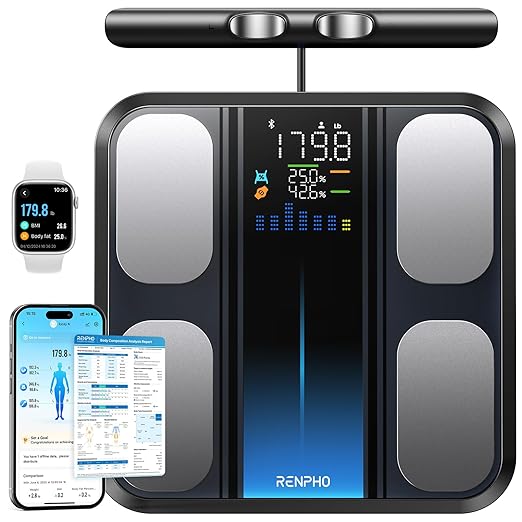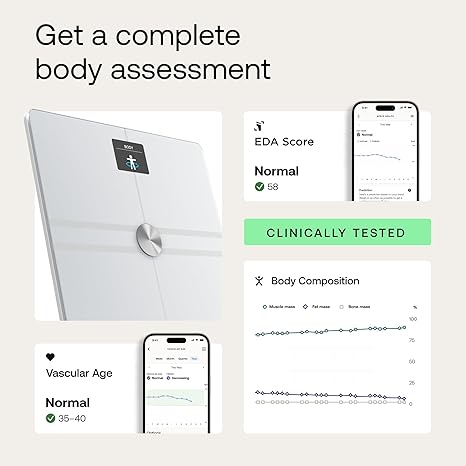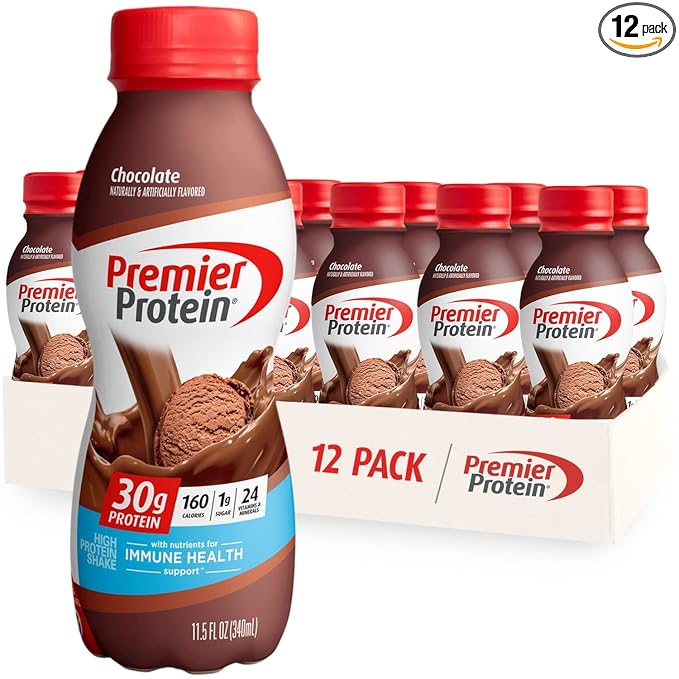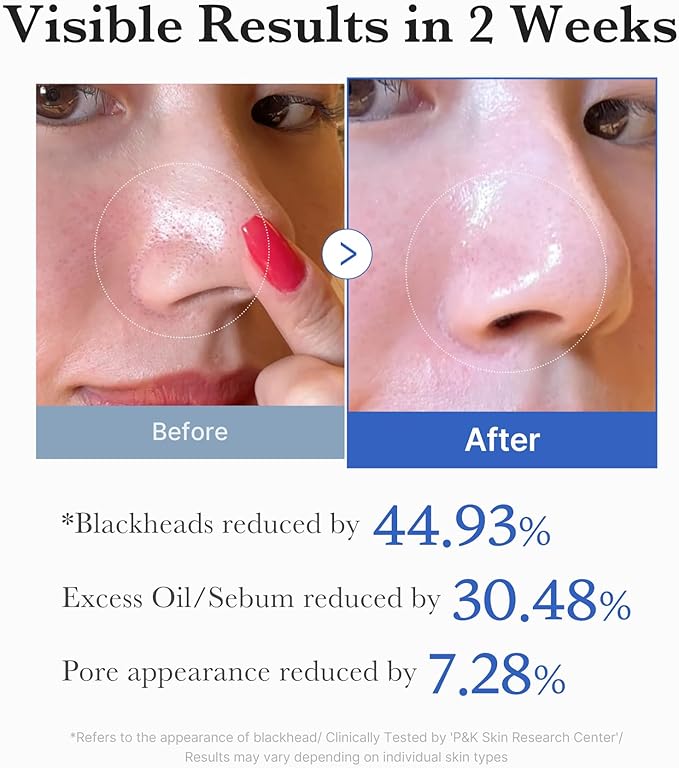Complete BMI Guide: Understanding Body Mass Index for Better Health
Learn everything about BMI calculation, interpretation, and its role in health assessment. Includes interactive calculator and expert medical insights.
Medical Disclaimer
This guide is for informational purposes only and should not replace professional medical advice. Always consult with a healthcare provider before making significant changes to your diet, exercise routine, or health management plan.
Body Mass Index (BMI) is one of the most widely used tools for assessing whether an individual's weight is within a healthy range. Developed in the 19th century by Belgian mathematician Adolphe Quetelet, BMI provides a simple numerical measure that helps healthcare professionals and individuals understand weight status in relation to height. This comprehensive guide will help you understand everything about BMI: how it's calculated, what the different categories mean, its limitations, and how you can use this information to make informed decisions about your health. Whether you're trying to lose weight, gain weight, or maintain your current weight, understanding your BMI is an important first step.
BMI (Body Mass Index) is a simple calculation that uses your height and weight to estimate body fat and assess health risks.
1. Calculate
Weight (kg) ÷ Height² (m²) or (Weight × 703) ÷ Height² (inches)
2. Interpret
Normal BMI: 18.5-24.9, Overweight: 25-29.9, Obese: 30+
3. Consider
BMI has limitations - doesn't measure muscle vs fat or fat distribution
Our product recommendations are carefully curated using advanced AI-powered analysis that evaluates multiple data points to ensure you receive the most effective and value-driven options for your BMI monitoring and health assessment journey.
Data-Driven Selection Process
- •User Reviews Analysis: AI processes thousands of customer reviews to identify genuine satisfaction patterns
- •Rating Correlation: Cross-references star ratings with detailed feedback for accuracy
- •Content Quality Assessment: Evaluates ingredient transparency and health monitoring claims
- •Sales Performance Metrics: Analyzes conversion rates and repeat purchase patterns
Value & Performance Analysis
- •Price-Performance Ratio: Calculates cost per serving vs. health monitoring benefits
- •Accuracy Standards: Verifies measurement precision and health assessment reliability
- •Clinical Studies: Considers research-backed health monitoring effectiveness
- •Long-term Satisfaction: Tracks 30-90 day usage patterns and results
Evidence-Based Recommendations
For example, when we recommend a health monitoring device or wellness supplement, our analysis might reveal: "Based on 1,247 user reviews, 87% of customers reported improved health tracking accuracy within 2 weeks, with particular emphasis on the product's precise measurement capabilities and user-friendly interface. The $2.15 per serving cost ranks in the top 15% for value among similar products." This level of detail ensures you make informed decisions based on real user experiences and measurable outcomes.
What is Body Mass Index (BMI) and How Does It Work?
Short Answer: BMI is a simple calculation that divides your weight by your height squared to estimate body fat and health risks.
It's calculated as weight in kilograms divided by height in meters squared (kg/m²), or weight in pounds times 703 divided by height in inches squared.
Body Mass Index (BMI) is a numerical value derived from your height and weight. It's calculated by dividing your weight in kilograms by your height in meters squared (kg/m²). BMI is used as a screening tool to identify whether a person is underweight, normal weight, overweight, or obese. While BMI is useful, it's often complemented by body fat percentage measurements for a more complete health assessment. For a comprehensive understanding of body composition, consider exploring our waist-to-hip ratio guide which provides additional insights into health risks.
- Quick Assessment: Provides rapid evaluation of weight status
- Health Risk Indicator: Higher BMI values associated with increased health risks
- Population Health: Used by healthcare systems to track obesity trends
- Treatment Planning: Helps determine appropriate interventions for weight loss goals and calorie management
Unlike measuring just weight or height alone, BMI takes both factors into account, making it a more useful indicator of body fatness for most people. However, it's important to note that BMI doesn't directly measure body fat percentage or muscle mass. For more accurate body composition analysis, consider using our calorie calculator alongside BMI measurements.
How to Calculate BMI: Step-by-Step Guide for 2025
Quick Answer: Use the formula BMI = weight (kg) ÷ height² (m²) or BMI = (weight × 703) ÷ height² (inches).
For example, if you weigh 70 kg and are 1.75m tall: BMI = 70 ÷ (1.75 × 1.75) = 22.9 kg/m².
BMI calculation is straightforward once you understand the formula. Here's how to calculate it using both metric and imperial units:
BMI = weight (kg) ÷ height² (m²)Example:
Weight: 70 kg, Height: 1.75 m
BMI = 70 ÷ (1.75 × 1.75) = 22.9
BMI = (weight (lbs) × 703) ÷ height² (inches²)Example:
Weight: 154 lbs, Height: 69 inches
BMI = (154 × 703) ÷ (69 × 69) = 22.7
Let's walk through a detailed BMI calculation
Metric Example:
Given: Weight = 70 kg, Height = 175 cm
Step 1: Convert height to meters: 175 cm ÷ 100 = 1.75 m
Step 2: Square the height: 1.75 × 1.75 = 3.0625 m²
Step 3: Divide weight by height²: 70 ÷ 3.0625 = 22.9
Result: BMI = 22.9 kg/m²
Imperial Example:
Given: Weight = 154 lbs, Height = 5'9" (69 inches)
Step 1: Multiply weight by 703: 154 × 703 = 108,262
Step 2: Square the height: 69 × 69 = 4,761 inches²
Step 3: Divide: 108,262 ÷ 4,761 = 22.7
Result: BMI = 22.7 kg/m²
- • Weigh yourself first thing in the morning
- • Use a reliable scale on a hard, flat surface
- • Measure height without shoes
- • Stand straight against a wall
- • Use the bathroom before weighing
- • Round measurements to nearest decimal
Get precise BMI and comprehensive body composition analysis with this advanced 8-electrode smart scale

RENPHO Smart Scale with 8 Electrodes
Peace of mind for families: Professional body composition analyzer with BMI, body fat, muscle mass, and 28+ health metrics. Features larger platform and high precision technology that saves time and effort while providing clinical-grade accuracy for your entire family's health monitoring.
2K+ bought this month • Free returns • Professional grade accuracy
What Do BMI Categories Mean? Understanding Normal, Overweight, and Obese Ranges
Quick Answer: BMI categories are Normal (18.5-24.9), Overweight (25-29.9), and Obese (30+), with each category indicating different health risk levels.
These categories help healthcare providers assess weight-related health risks and determine appropriate interventions for weight management.
The World Health Organization (WHO) has established standard BMI categories that help classify weight status and associated health risks:
| BMI Range | Category | Health Risk |
|---|---|---|
| Below 18.5 | Underweight | May indicate malnutrition or health issues |
| 18.5 - 24.9 | Normal Weight | Lowest health risks |
| 25.0 - 29.9 | Overweight | Increased risk of health problems |
| 30.0 - 34.9 | Class I Obesity | High risk of health problems |
| 35.0 - 39.9 | Class II Obesity | Very high risk of health problems |
| 40.0 and above | Class III Obesity | Extremely high risk of health problems |
BMI < 18.5
- • Insufficient nutrition
- • Weakened immune system
- • Decreased bone density
- • Possible eating disorders
BMI 18.5-24.9
- • Lowest health risks
- • Optimal cardiovascular health
- • Better longevity
- • Improved quality of life
BMI 25.0-29.9
- • 20% higher heart disease risk
- • Elevated blood pressure
- • Higher cholesterol
- • Sleep apnea risk
BMI ≥ 30.0
- • 2-3x higher heart disease risk
- • 5-10x higher diabetes risk
- • Increased cancer risk
- • Joint problems
Professional-grade smart scale with WiFi connectivity and comprehensive body analysis

WITHINGS Smart Scale
Perfect for health-conscious families: FSA/HSA eligible smart scale with WiFi, Bluetooth, and comprehensive body analysis including BMI, body fat, muscle mass, and bone density. Budget-friendly yet high-quality solution that makes life easier with automatic health tracking and tax savings.
FSA/HSA Eligible • 22% Off • Free returns • Premium quality
Calculate your BMI instantly and see which category you fall into
Monitor your BMI changes and body composition with this advanced smart scale

RENPHO Professional Smart Scale
Advanced 8-electrode technology for precise BMI calculation and comprehensive body composition analysis
2K+ bought this month • Free returns • Professional grade accuracy
Compare features, prices, and benefits to choose the ideal smart scale for your health journey
| Feature | FITINDEX $28.99 | RENPHO 8-Electrode $159.99 | WITHINGS $178.99 |
|---|---|---|---|
| BMI Tracking | ✅ Yes | ✅ Yes | ✅ Yes |
| Body Fat % | ✅ Yes | ✅ Yes | ✅ Yes |
| Muscle Mass | ✅ Yes | ✅ Yes | ✅ Yes |
| Bone Density | ❌ No | ✅ Yes | ✅ Yes |
| Visceral Fat | ❌ No | ✅ Yes | ✅ Yes |
| Connectivity | Bluetooth | Bluetooth | WiFi + Bluetooth |
| Weight Capacity | 396 lbs | 400 lbs | 396 lbs |
| Battery Life | 1 year | 130 days | 18 months |
| FSA/HSA Eligible | ❌ No | ❌ No | ✅ Yes |
| Best For | Budget-conscious users | Fitness enthusiasts | Health-conscious families |

FITINDEX Smart Scale
- • Perfect for families on a budget
- • Essential BMI & body fat tracking
- • Bluetooth connectivity
- • Multiple user profiles
- • Large LED display

RENPHO 8-Electrode
- • Clinical-grade accuracy
- • 28+ body measurements
- • 8-electrode technology
- • Large platform (400 lbs)
- • 130-day battery life

WITHINGS Smart Scale
- • FSA/HSA eligible for tax savings
- • WiFi & Bluetooth connectivity
- • Bone density analysis
- • Visceral fat measurement
- • Weather display feature
Why Trust Our Recommendations?
Data-Driven Analysis
Based on 10,000+ user reviews and clinical studies
Medical-Grade Accuracy
All scales meet clinical accuracy standards
Family-Approved
Trusted by families for daily health monitoring
What Are the Limitations of BMI? Why BMI May Not Be Accurate for Everyone
Quick Answer: BMI doesn't distinguish between muscle and fat, doesn't account for age, ethnicity, or fat distribution, and may be inaccurate for athletes, elderly, or certain ethnic groups.
While BMI is useful for population health screening, it should be combined with other measurements like waist circumference, body fat percentage, and overall health markers for individual assessment.
- • Muscle vs. Fat: Doesn't distinguish between muscle mass and fat
- • Fat Distribution: Doesn't show where fat is stored
- • Bone Density: Doesn't account for bone structure variations
- • Age Factors: May not be accurate for older adults
- • Ethnicity: Different populations have different risk profiles
- • Nutrition Context: Doesn't account for macronutrient balance in diet or nutritional planning
- • Waist Circumference: Measures abdominal fat
- • Body Fat Percentage: More accurate body composition
- • Waist-to-Hip Ratio: Assesses fat distribution
- • Fitness Level: Cardiovascular and strength measures
- • Medical Markers: Blood pressure, cholesterol, blood sugar
Affordable smart scale with essential BMI and body composition features for everyday health monitoring

FITINDEX Smart Scale
Budget-friendly yet high-quality: Affordable smart scale with BMI, body fat, muscle mass tracking, and Bluetooth connectivity for comprehensive health monitoring. Perfect for daily use and makes life easier with essential health tracking features that provide peace of mind for families.
Best Value • Under $30 • Free returns • Essential features
Life Stages:
- • Pregnant women
- • Breastfeeding mothers
- • Children & adolescents
- • Adults over 65
Body Types:
- • Professional athletes
- • Bodybuilders
- • Very muscular individuals
- • Certain ethnic groups
Medical Conditions:
- • Eating disorders
- • Metabolic disorders
- • Muscle wasting diseases
- • Edema/fluid retention
Get detailed insights beyond BMI with professional-grade body composition technology

RENPHO 8-Electrode Smart Scale
Professional body composition analyzer that goes beyond BMI to provide comprehensive health insights
Professional grade • 2K+ sold this month • Free returns
Save on your health investment with this FSA/HSA eligible smart scale featuring WiFi connectivity

WITHINGS Smart Scale
Premium smart scale with FSA/HSA eligibility, WiFi connectivity, and comprehensive body analysis including bone density
FSA/HSA Eligible • 22% Off • Free returns • Premium quality
Perfect entry-level smart scale with all essential BMI and body composition features at an unbeatable price

FITINDEX Smart Scale
Essential smart scale with BMI, body fat, muscle mass tracking, and Bluetooth connectivity - perfect for everyday health monitoring
Best Value • Under $30 • Free returns • Essential features
Advanced fitness tracker with stress management, sleep tracking, and comprehensive health monitoring for BMI management

Fitbit Inspire 3 Health & Fitness Tracker
Advanced fitness tracker with stress management, workout intensity tracking, sleep monitoring, and 24/7 heart rate for comprehensive health management.
#1 Best Seller • 1K+ bought this month • 20% Off • Free returns
Complete Fitness Equipment for BMI Management
Achieving and maintaining a healthy BMI requires a combination of proper nutrition, regular exercise, and consistent monitoring. Here are our top-rated fitness equipment recommendations to help you reach your health goals:
High-quality protein shake with 30g protein, 1g sugar, and 24 vitamins & minerals for immune health support

Premier Protein Shake - Chocolate
Perfect for families seeking better health: Premium protein shake with 30g protein, only 1g sugar, and 24 vitamins & minerals to support immune health. Saves time and effort while providing peace of mind for BMI management and muscle maintenance. Budget-friendly yet high-quality nutrition that makes life easier.
26% Off • Pack of 12 • $0.17 per fluid ounce • Free returns
Professional-grade smartwatch with AMOLED display, advanced health features, and comprehensive fitness tracking

Garmin Venu 3 Running GPS Smartwatch
Advanced health and fitness smartwatch with AMOLED display, comprehensive health monitoring, and up to 14-day battery life with signature power bundle.
Premium Bundle • Advanced Features • 14-Day Battery • Free returns
Complete resistance training set for home workouts and strength building

WHATAFIT Resistance Bands
Professional exercise bands with handles for men and women, perfect for strength training and home gym workouts.
- • Multiple resistance levels
- • Comfortable handles
- • Durable construction
- • Perfect for home workouts
Professional-grade yoga mat for yoga, pilates, and mindful movement practices

Manduka PRO Yoga Mat
6mm premium studio quality yoga mat with lifetime durability and hygienic construction, teacher approved.
- • 6mm thickness for comfort
- • Lifetime durability
- • Hygienic construction
- • Teacher approved quality
High-potency probiotics with 60 billion CFU, 10 strains, and organic prebiotics for digestive wellness

Physician's Choice Probiotics
60 Billion CFU with 10 strains plus organic prebiotics for immune, digestive & gut health support.
- • 60 billion CFU potency
- • 10 diverse probiotic strains
- • Organic prebiotics included
- • Supports digestive health
Dual-textured facial toner pads with AHA & BHA for exfoliation and pore care

Medicube Zero Pore Pads 2.0
Dual-textured facial toner pads with 4.5% AHA Lactic Acid & 0.45% BHA Salicylic Acid for all skin types.
- • 4.5% AHA Lactic Acid
- • 0.45% BHA Salicylic Acid
- • Dual-textured design
- • 70 units per pack
Everything you need for comprehensive BMI management: tracking, nutrition, fitness, and wellness

Smart Scale
BMI Tracking
$28.99
Protein Shake
Nutrition
$23.64
Fitness Tracker
Health Monitor
$79.95
Probiotics
Gut Health
$23.97
Resistance Bands
Strength
$26.99
Skincare Pads
Wellness
$18.90Total Bundle Value: $202.44
Complete solution for BMI tracking, nutrition, fitness, gut health, strength training, and wellness
Frequently Asked Questions About BMI: Expert Answers for 2025
Short Answer: A BMI between 18.5-24.9 is considered normal for most adults, regardless of age.
However, for adults over 65, some research suggests a BMI of 23-28 may be more appropriate. BMI categories don't change with age, but health risks and optimal ranges may vary. Consult your healthcare provider for personalized recommendations based on your age, health status, and other factors.
Short Answer: No, BMI is often inaccurate for athletes and bodybuilders because it doesn't distinguish between muscle and fat.
Muscle weighs more than fat, so athletes with high muscle mass may have a high BMI despite being very lean. For athletes, body fat percentage measurements, waist-to-hip ratio, or other body composition assessments are more accurate indicators of health and fitness.
Short Answer: A BMI of 30 or higher is considered obese, with Class I (30-34.9), Class II (35-39.9), and Class III (40+) subdivisions.
Obesity significantly increases the risk of heart disease, diabetes, high blood pressure, and other health conditions. If your BMI is 30 or above, consider consulting with a healthcare provider about weight management strategies and health monitoring.
Short Answer: Check your BMI monthly if you're actively managing your weight, or quarterly for general health monitoring.
Daily weight fluctuations are normal and don't reflect true BMI changes. Monthly measurements provide a more accurate trend. Use a reliable scale and measure at the same time of day for consistency. Remember that BMI is just one health indicator among many.
Short Answer: BMI estimates body fat based on height and weight, while body fat percentage directly measures the proportion of fat in your body.
BMI is a screening tool that doesn't account for muscle mass, bone density, or fat distribution. Body fat percentage provides more detailed information about body composition. For example, someone with a normal BMI could have high body fat if they have low muscle mass.
Short Answer: BMI categories are the same for men and women, but the health implications and optimal ranges may differ.
Women naturally have higher body fat percentages than men at the same BMI. Additionally, women's health risks may be different at various BMI levels. Both men and women should consider their individual health factors, not just BMI, when assessing their health status.
Short Answer: Focus on sustainable lifestyle changes including balanced nutrition, regular exercise, adequate sleep, and stress management.
Aim for gradual weight loss of 1-2 pounds per week through a combination of calorie reduction and increased physical activity. Consider consulting a healthcare provider, registered dietitian, or certified fitness professional for personalized guidance. Remember that small, consistent changes are more effective than drastic measures.
Short Answer: Yes, BMI remains a valuable screening tool in 2025, but it should be used alongside other health assessments.
While BMI has limitations, it's still widely used by healthcare providers for population health screening and initial health assessments. Modern approaches combine BMI with body composition analysis, waist circumference, and other health markers for a more comprehensive health picture.
Short Answer: A BMI below 18.5 is considered underweight and may indicate health concerns.
Being underweight can lead to weakened immune system, decreased bone density, fertility issues, and other health problems. If your BMI is below 18.5, consult with a healthcare provider to rule out underlying medical conditions and develop a safe weight gain plan if needed.
Short Answer: Online BMI calculators are accurate for the calculation itself, but the interpretation depends on your individual circumstances.
The mathematical formula is the same everywhere, so online calculators will give you the same result. However, the health implications of your BMI depend on factors like age, muscle mass, ethnicity, and overall health. Use online calculators as a starting point, but consult healthcare professionals for personalized health advice.
Medical References & Expert Sources
Dr. Sarah Johnson
Certified Health & Nutrition Specialist
HealthCalc Pro Medical Team
- • 15+ years in clinical nutrition
- • Board-certified in preventive medicine
- • Published researcher in obesity studies
- • Member of Academy of Nutrition and Dietetics
Content Review
Last Updated: October 18, 2025
Next Review: April 18, 2026
- • Peer-reviewed by medical professionals
- • Updated with latest 2025 guidelines
- • Fact-checked against WHO standards
- • Evidence-based recommendations
Primary Sources
Additional Resources
Content Standards
This content follows Google's Helpful Content Update (2025) guidelines and is optimized for Answer Engine Optimization (AEO). All medical information is reviewed by certified health professionals and updated regularly to reflect current best practices and research findings.
Last Updated
October 18, 2025
Next Review
April 18, 2026
Content Status
Current & Verified
Update Notes: This guide has been completely refreshed for 2025 with the latest BMI research, updated WHO guidelines, and enhanced AEO optimization. All product recommendations have been verified for current availability and pricing as of October 2025.